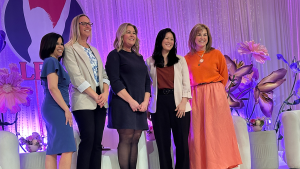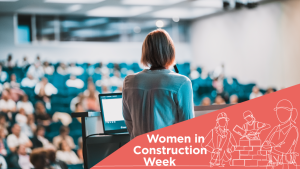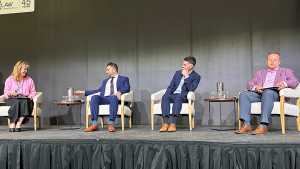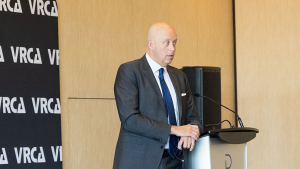A recent (VRCA) webinar series is tackling the big issues facing constructionãs role in Indigenous reconciliation.
president and principal Will Pauga and Indigenous relations and business development consultant Sam Brezden both addressed ways to meaningfully approach reconciliation and connect with Indigenous communities and businesses in the second VRCA Bridging Perspectives webinar series, titled Building Stronger Partnerships.
The webinar participants said reconciliation has seen progress in recent years but there are still obstacles to overcome.
ãI would say one of the biggest roadblocks is having leadership in companies understand that it starts with education. Whether people feel like theyãre forced to start a relationship or really want to do the right thing, education is so key to understand where Indigenous people are coming from,ã Brezden said. ãGetting past the stigma of Indigenous people wanting a handout is huge, (as is) having companies understand they just want a genuine partnership from the get-go and not get consulted after a project has begun.ã
Pauga cited the Truth and Reconciliation Commission of Canadaãs 92 Calls to Action document, highlighting statements on the need for equitable access for economic development involving Indigenous people as well as gaining long-term sustainable benefits from training initiatives.
ãThere are different forms of reconciliation. Thereãs cultural, economic and social. In our reconciliation action plan we address each one of these,ã he said. ãCulturally you have to realize there were a bunch of things that were taken away from First Nations, language for oneãÎand thatãs how you assimilate a culture, you take away the things that are important to them.ã
Pauga pointed to his own Máori heritage and said in the case of New Zealand, which began reconciliation efforts several decades before Canada, ã(the Máori) realized their language is a treasure and it was presented that way. Itãs now taught in schools. It was brought back as a way to assimilate the culture in all government departments.ã
He also said consultation is required with Indigenous people before projects can take place on their land because ãif thereãs going to be a cost to it, there has to be a benefit.ã
Both Pauga and Brezden said reconciliation efforts start internally, with Pauga saying some people didnãt even know what residential schools were or their past and present impact on Indigenous people. The last residential school in Canada was closed in 1996.
ãThatãs often how I open a discussion, ãWhat were you doing in 1996? I bet you remember, and this was happening in your backyard,ãã Brezden said.
ãOnce they understand what weãre reconciling for, then theyãll understand why itãs been put in place,ã Pauga said.
Brezden also noted reconciliation as a term means something different to each community.
ãEach community has a different history when it comes to engaging with the private sector, so it gets a bit tricky because not every community wants to participate in natural resource projects or has massive development on their land,ã she said. ãItãs about going back to that education piece and listening to that specific community and listening to what their interests are as far as partnerships go.ã
Brezden also said the majority of communities want to participate in economic development, but they want partnerships, not for someone to ãjust knock on their door when itãs time to tick a box and send them a cheque for five per cent.
ãThey want to be engaged with when youãre starting to think about these projects not after theyãve already started and all of a sudden youãve been told you have to engage with them. They want to be part fo the conversation because economic development is at the forefront. They canãt pay for things that theyãre lacking in their community whether it be health care, education, revitalizing culture and ceremonial languageãÎthey need money to do that,ã she said.
The third VRCA webinar is on Tuesday, March 26, at 12 p.m. PT, and the theme is Integrating Indigenous Practices in ôÕѿǨû§¡ÔúÍion.











Recent Comments
comments for this post are closed